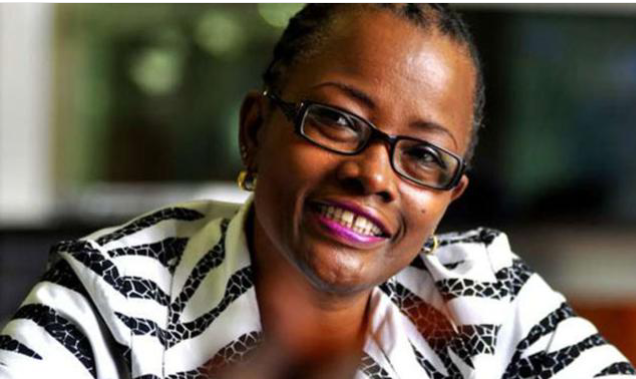Maggie Wazome, hailing from Mombasa, embarked on an extraordinary path that would echo her voice throughout Kenya. After completing her studies at Blanes Secretarial College, she found herself at a recording studio managed by Andrew Crawford, a commercial producer at the Kenya Broadcasting Corporation (KBC).
Little did she anticipate that this encounter would shape her destiny and propel her to become the voice behind one of Kenya’s most recognizable telecommunications messages.
It was the renowned radio presenter Fred Machoka who paved the way for her entry into the world of voice commercials. At the time, he recommended that she lend her voice to commercials, which ultimately led her to meet Andrew Crawford.
It was Crawford’s agency that eventually compensated her for the recording. Prior to that, she had worked at Radio Citizen and then served as a personal assistant at a subsidiary company of Booker Tate.
During her time at the firm, she recorded the now-famous line, “Samahani, mteja wa nambari uliyopiga hapatikani kwa sasa” (Sorry, the mobile subscriber cannot be reached), with Crawford’s agency. However, at the time, Crawford did not disclose the purpose or use of the lines they were recording.
“I read a few lines with various content, and one of them was ‘mteja wa nambari uliyopiga,'” she shared in a 2015 interview with the Daily Nation. “Back then, I was so young and focused on the money. I just wanted to make some pocket money for myself. Little did I know it would turn out so well. So, I recorded the lines, and they told me, ‘Alright, there’s a client looking for a specific voice. We’ll call you back and let you know.'”
Out of the 16 individuals who had recorded those lines, Maggie was fortunate enough to be chosen.
“The next call I received, they said, ‘Alright, Maggie, you’re the lucky one in the end,'” she told DN. “Up until that point, by the way, I had no idea it was Safaricom. I had absolutely no clue.”
The automated message was recorded several months before Safaricom PLC commenced its operations in October 2000.
Currently, Maggie works at Safaricom as a CEE (Customer Experience Executive). Interestingly, she came across a job advertisement for customer care representative positions at Safaricom in a local daily and decided to apply. During her interview, the panel was astounded when she revealed that she was the voice behind “mteja.”
“They asked me to repeat it, and their response was, ‘Oh my goodness!’ Maybe that helped me secure the job, I don’t know,” she said.
While “mteja” became her signature line, Maggie’s voice extended beyond that iconic phrase. She also provided prompts for callers to leave messages when a subscriber was busy, offering a professional and reassuring tone during temporary unavailability.
Her versatility and ability to adapt her voice to various contexts showcased her talent and significantly contributed to Safaricom’s seamless user experience.
Maggie Wazome’s voice has transcended being just an automated message; it has become a national treasure. Her contributions to Safaricom and the mobile phone industry in Kenya are widely acknowledged and have left an indelible mark on the telecommunications landscape.
Referenced in parliamentary records and court judgments, Maggie’s voice has become a symbol of Kenyan identity and cultural heritage.
To this day, Maggie Wazome’s voice continues to resonate through Safaricom’s network, serving as a reminder to Kenyans of the importance of connection and communication.
Her journey, from a young girl with a talent for voiceover work to becoming an iconic voice in the nation, exemplifies the unexpected opportunities



